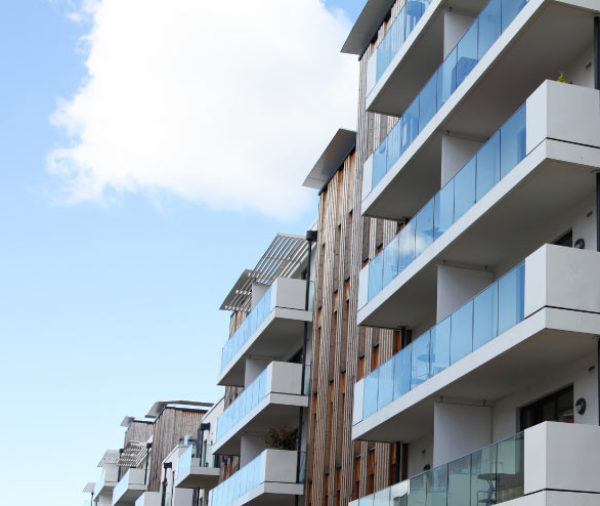Our surveyors have extensive experience of valuing for lease extension and freehold purchases from small studios to blocks with tens of flats. The majority of claims fall under the Leasehold Reform, Housing and Urban Development Act 1993 (the 1993 Act) but there are certain circumstances when the Landlord and Tenant Act 1987 (the 1987 Act) applies.
Leaseholders have a choice between the formal route (via the service of a notice) or what is commonly called the ‘informal route’ (approaching the freeholder prior to serving a notice). Choosing between the multitude of options can be daunting but can be easily explained by a member of our team who will set out the best and most appropriate way forward.
Whilst occasionally the leaseholder and freeholder are on good enough terms to agree the premium without any further professional assistance, most cases are rather more adversarial and will require the surveyor acting for one side to negotiate with the surveyor acting for the other. If the premium cannot be agreed both parties do have the resolution of the First Tier Tribunal.
Leasehold Calculator
Estimate the likely costs of a lease extension under the Leasehold Reform, Housing and Urban Development Act 1993.
LEASE EXTENSION
Lease extensions under the 1993 Act gives the leaseholder the right to an additional 90 years on top of their remaining term at a peppercorn ground rent.
Read More >>
FREEHOLD ENFRANCHISEMENT
As an alternative to a lease extension, leaseholders in a block can acquire the freehold in what is technically known as enfranchisement.
Read More >>
ABSENTEE FREEHOLDERS
A little know solution to a missing Landlord and often cheaper than enfranchisement.
Read More >>
We strive to help clients extend their lease and acquire their freehold saving them tens of thousands of pounds.
From a low value lease extension to freehold enfranchisements worth hundreds of thousands of pounds, Peter Barry have been on the side of leaseholders for over 10 years. We have offices across London in Kensington, Fulham, South Woodford, Winchmore Hill, Hendon and Greenwich.
Matthew Price (Hons) BSc MRICS has successfully represented clients at the First Tier Tribunal (FTT) and both he and Steve Hobbs have been selected as expert witnesses by the President of the FTT in absent landlord claims under both the 1993 and 1987 Act. We have gained a reputation for providing straightforward and competent advice. We also work closely with a number of prominent legal practices within the leasehold and enfranchisement arena.
We are also up to date with the latest Leasehold Reform proposals which we recommend clients familiarise themselves with. You can read our analysis on our blog.
We only provide services to areas where we have a local expert surveyor.
Efficient practices mean great rates. Our desktop studies can offer further savings.
Our surveyors have negotiated hundreds of lease extensions and enfranchisements from the straight forward through to appearing at Tribunal.
how does it work?
contact us
For in depth advice and a quotation.
Confirm Instruction
Book one of our Chartered Surveyors to undertake your survey.
conduct survey
One of our Valuers will be in charge of your case and analyse the market.
Receive Detailed Report
You will receive your report within 4/5 working days followed by a telephone conversation.
Onwards with Solicitor
Your report will be forwarded to your solicitor who will serve notice on your Freeholder.
Frequently Asked Questions
What is a leasehold valuation?
Under the Leasehold Reform, Housing and Urban Development Act (1993), owners of a leasehold property can compel their freeholders to extend their lease by 90 years, and eliminate their ground rent in exchange for a sum of money.
To determine this sum, a valuation will need to be carried out by a surveyor working in the interest of the leaseholder, and a separate surveyor working in the interest of the freeholder. The valuation includes:
- Compensation for the loss of ground rent
- Compensation for the freeholder being unable to acquire the property for another 90 years
- Half of the “marriage value” created by the lease extension
If these two surveyors cannot reach an agreement, the case can be referred to the First-tier Tribunal for determination. For an idea about the potential costs of your leasehold extension, try our online leasehold calculator.
What exactly is the marriage value?
When you extend a lease the value of the lease becomes higher, and the value of the freehold becomes lower. When that lease is short the uplift in the value of the lease will usually be greater than the diminution in the value of the freehold. That additional ‘profit’ is called marriage value. Under the legislation, when a lease has less than 80 years left to run, 50% of the marriage value is payable to the freeholder when the lease is extended.
If the property still has 80 years or more on the lease the marriage value is disregarded, and the leaseholder will not have to pay it. This is why it’s financially beneficial to start the leasehold extension proceedings before the remaining term falls below this point.
What is a Leasehold Valuation Tribunal?
The First-tier Tribunal – previously known as the Leasehold Valuation Tribunal is a sort of small court. At a hearing both surveyors submit their evidence, and the Tribunal members make a determination based on that evidence. The Tribunal can determine the compensation payable to the landlord, and/or the reasonableness of the costs incurred by the landlord that he intends to recover from the tenant.
What is a Section 42 Notice?
If a leaseholder is seeking an extension to their term, there are two ways they can achieve this; by making a private agreement with the freeholder, or serving a formal notice, referred to as notice under Section 42.
This opens the legal procedure for compelling a landlord to grant a lease extension, and the leaseholder must include a date at least 2 months in the future by which the freeholder must respond. If no Counter Notice is served by the stipulated date, you can apply to the County Court, who may grant you a new lease on the terms proposed in your notice.


